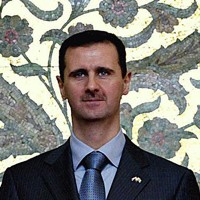The debate over whether or not to intervene militarily in Syria is hardly a new one. In fact, it is one that resurfaces every time a humanitarian crisis pushes the boundaries of our collective moral conscience. And because we have yet to decisively resolve the question of when to use American military force in such cases, the outcome of each recurring instance of this debate hinges on an ad hoc combination of factors, including the public's mood, media coverage of the crisis and, at times, elements as haphazard as the vocal support of a celebrity spokesperson.
In the case of Libya, the particular nature of that conflict, including the coastal geography of the theater of operations and the feebleness of the Libyan armed forces, made the risks of an uncertain intervention more palatable. In other words, because there was very little at stake, the objections to intervention could be dismissed; the conflict's very strategic insignificance made it strategically palatable.
Nonetheless, care was still taken to make sure the operation was not portrayed as, and did not devolve into, a long-term, boot-heavy state-building operation. The reason is obvious: Such missions have been discredited in the public mind by the failures in Somalia, Afghanistan and Iraq, and in any case are not a viable policy option given public war-weariness.

